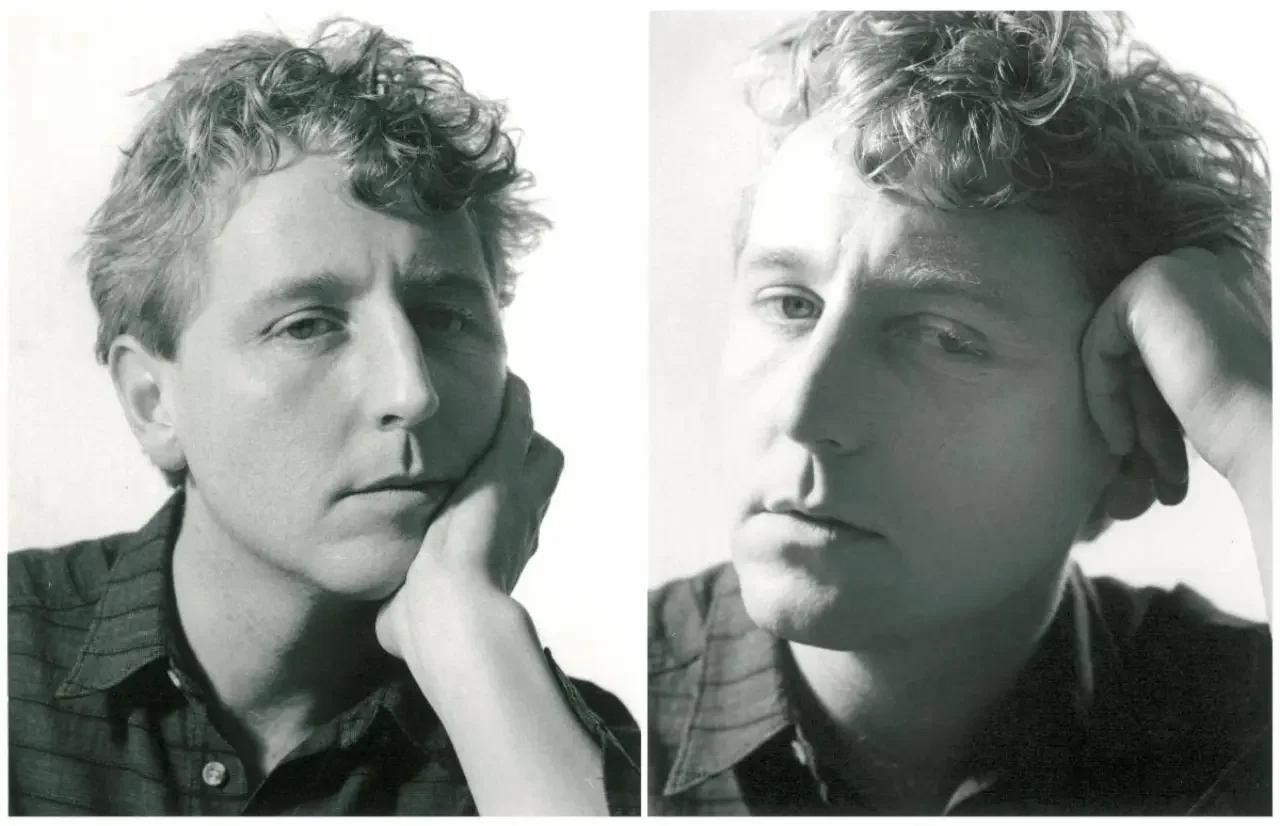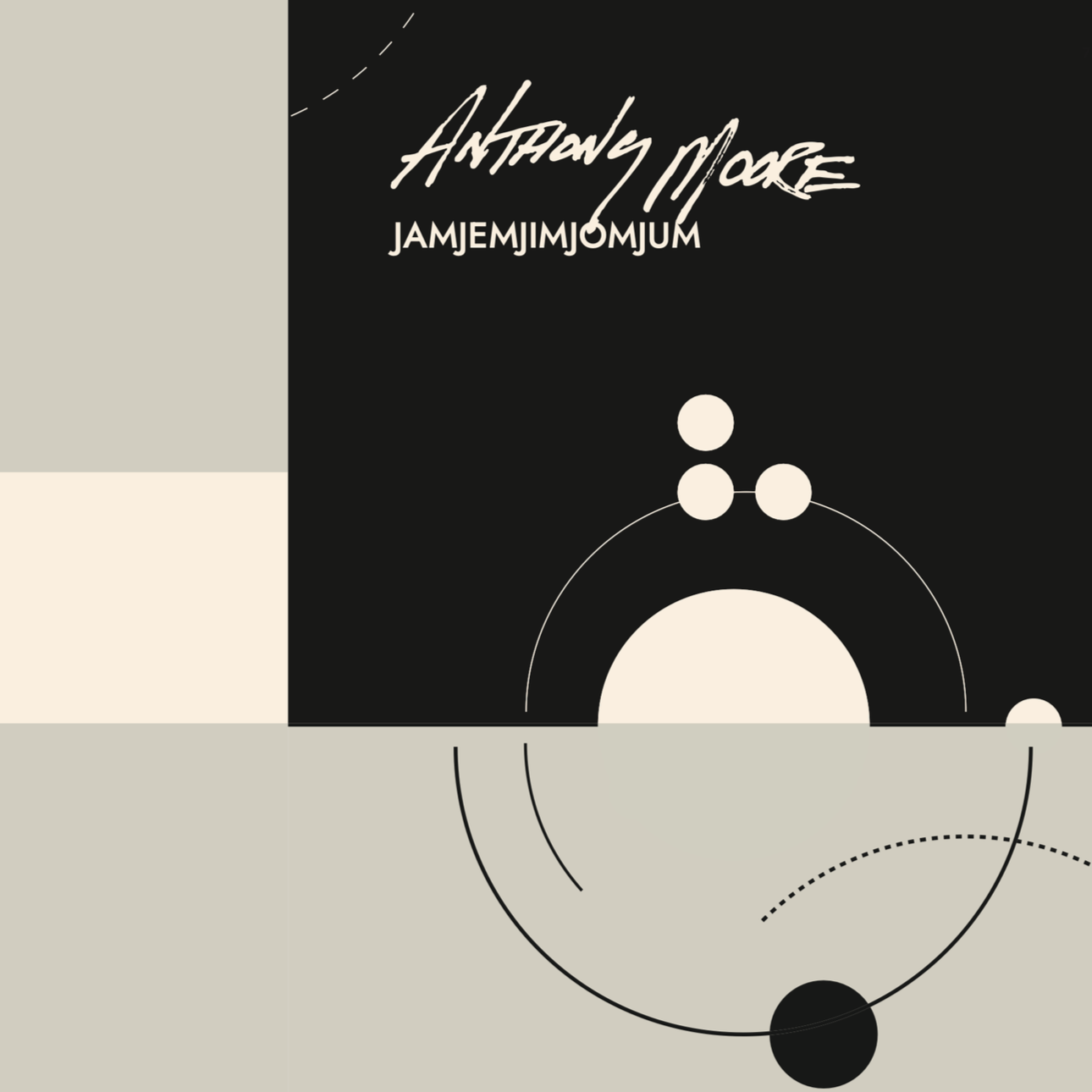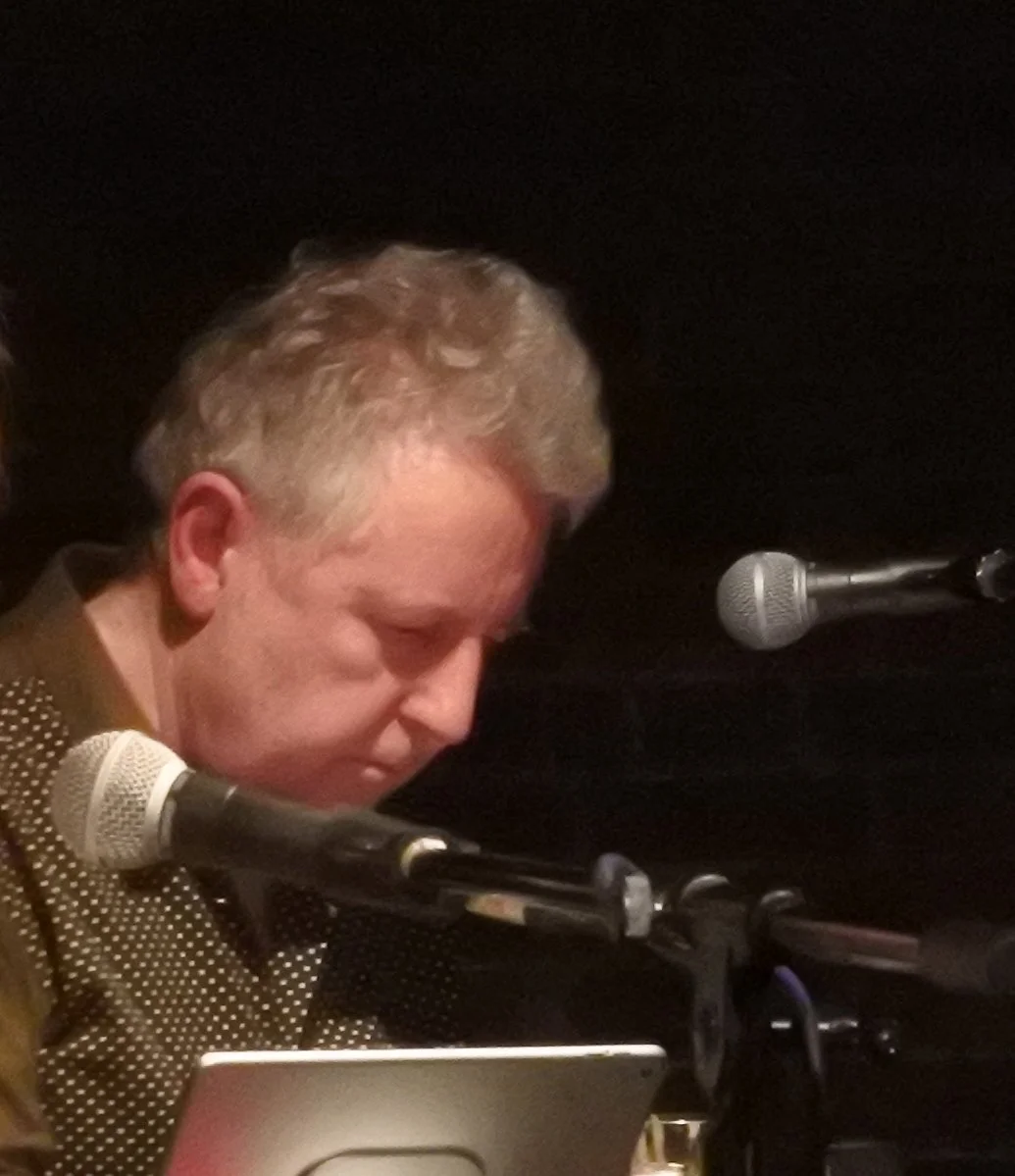Anthony Moore
JamjemjimjomjUm
“Moore’s sound continues to trigger a pleasant unease, a malaise to this day, precisely because it is great art, because we allow ourselves to be fooled by our pattern recognition, by our desire for cause and effect. Moore thereby leads us into a world that is music and yet is not.”
— HHVMag
Anthony Moore has been a wellspring of sonic thought and practice for a half-century, generating soundwaves through myriad channels, including modern composition, audio installation, field recording, inventive songsmithing, and film soundtracks.
In 1969, Moore was an avant-garde composer in Hamburg, West Germany, partnering with a burgeoning experimental cinema scene. Exploring the possibilities of “tape machines as instruments,” he performed real-time manipulations in tandem with film projections. These pioneering techniques soon gained the attention of the Promethean media critic and Krautrock producer Uwe Nettelebeck. With insider savvy, Nettlebeck promptly secured Moore a record deal and a series of studio sessions at an isolated farmhouse in Wümme, also home to the notorious band Faust. Concurrently, another composer passed through, making his first professional recordings: Tony Conrad. Realized in quick succession, these debut efforts — Moore’s Pieces From the Cloudland Ballroom and Conrad’s Outside the Dream Syndicate — would comprise two impeccably improbable major-label releases, a bulrush-basket delivery of righteous, minimalist portent to Pharaoh’s grandiose discotheque.
In 1972, Moore, Peter Blegved, and future wife Dagmar Krause founded the experimental pop trio Slapp Happy, complemented by Faust. The wry simplicity and self-reflexive modesty of Slapp Happy subverted ubiquitous “counter-cultural” posturings. They owed more to the airy primitivism of Henri Rousseau than the stony aggrandizements of Hard Rock; in an era of overt indulgence, theirs were gestures of covert subtlety. These deceptively gentle confrontation strategies led to an affiliation with the agitprog collective Henry Cow. Afterward, as that relationship waned and the 1970s proceeded in retrograde, Moore advanced in various roles, including collaborations with Kevin Ayers of Soft Machine and Andy Summers of the Police, production of This Heat’s eponymous debut, a writing partnership with Rick Wright, and contributions to two albums by Pink Floyd.
Anthony Moore’s present-day pairing with Table of the Elements is replete in radical symmetries. Returning to his earliest work, Moore undertakes the first full expression of 1971’s Jamjemjimjomjum. Deceptively simple in concept and dramatically advanced in execution, Jjjjj is an aural palindrome realized live in real-time by a choral dectet (i.e., ten vocalists). Each sings at a fixed pitch, a short sound-word containing one of the five vowels immediately followed by a specific number of sung beats. Synchronized to a metronomic pulse, loops continually catch and overtake each other. Together, these enunciate a mirrored assemblage that can be considered simultaneously in two directions that meet in the middle, e.g., “Satan oscillate my metallic sonataS,” if you will. The structure can go forward or backward, but the song remains the same.
That this work was destined for Table of the Elements is similarly coherent. The expansive live performances and recordings of Jimjamjemjomjun materialize as a Mobius strip connecting past and present, intent and actualization, and offer a burst of physical and intellectual rigor that challenges a listener with the implacable persistence of a hypnotist’s swinging timepiece.
•••••
“Within its own, it’s unquestionably visionary and unlike anything else … the emergence of an entirely different vision of Minimalism, running parallel, with its own distinct set of creative values, from its dominant American peer, laying the groundwork for so much of what was to come. “Jam Jem Jim Jom Jum,” for three voices underscored by a piano tone, unfolds as a chanting, hypnotic, and almost primal expanse of sound natural, organic, and imperfect, as though it belongs to the root of music itself, simple and perfect in every way. It unmistakably foreshadows elements of Philip Glass’ approach to the human voice which would emerge years down the road.”
— Soundohm
“As an artist, he’s a highly idiosyncratic innovator who combines art and rock into a far-reaching, weird and wonderful set of styles, from the atonal to the hook-laden. More imparts all his songs with a nonconformist’s perspective that defies easy comprehension … Building dense sonic forests filled with jagged splinters and dry, incongruously delicate vocals, the results fall somewhere between Peter Gabriel, John Cale, David Bowie, and Kevin Ayers. An extraordinary record that reveals itself a little further each time it’s played.”
— Trouser Press
“Anthony Moore's contribution to the post-punk pre-wave sound of London in 1979 — light with pop, fronted with meta-punk attitude and draped in strings of keyboard theory. As someone else said at the time, The perfect release!”
— Amazon
“Fragile, exact, and unlike almost anything in the history of the movement to which it belongs … blends a pop sensibility otherwise only witnessed in the work of Brian Eno and John Cale, with the metronome of Steve Reich, creating a joyous, hypnotic explosion that lingers, long after the album’s close.”
— Soundohm
“With Slapp Happy, Anthony Moore and his bandmates, Peter Blegvad and Dagmar Krause, explored an intricate form of art-house cabaret, infusing world-weary little musical hall melodies with odd tunings and baroque arrangements, so that they landed somewhere between lieder and 1960s romantic pop.”
— Dusted
“A bona fide minimal classic.”
— Alan Licht
Anthony Moore
Jamjemjimjomjum
2025
Table of the Elements
[Boron] 5
EOE-005




